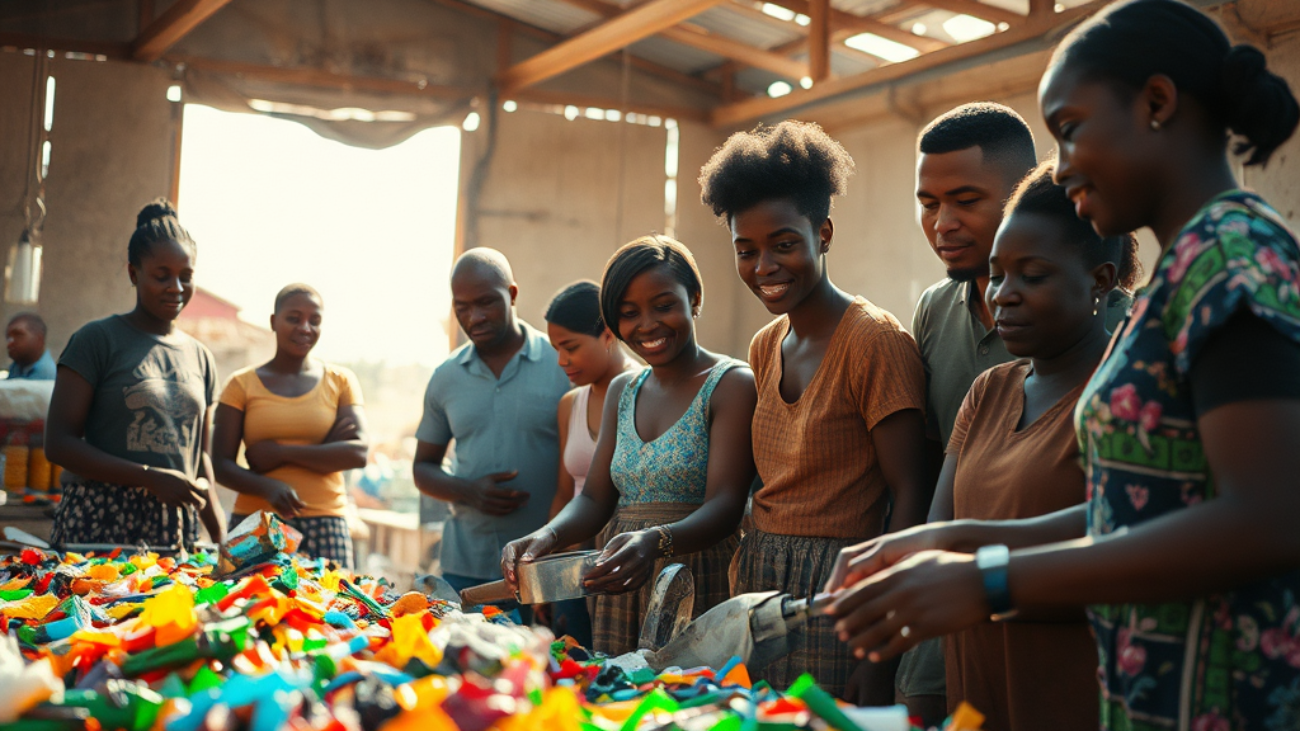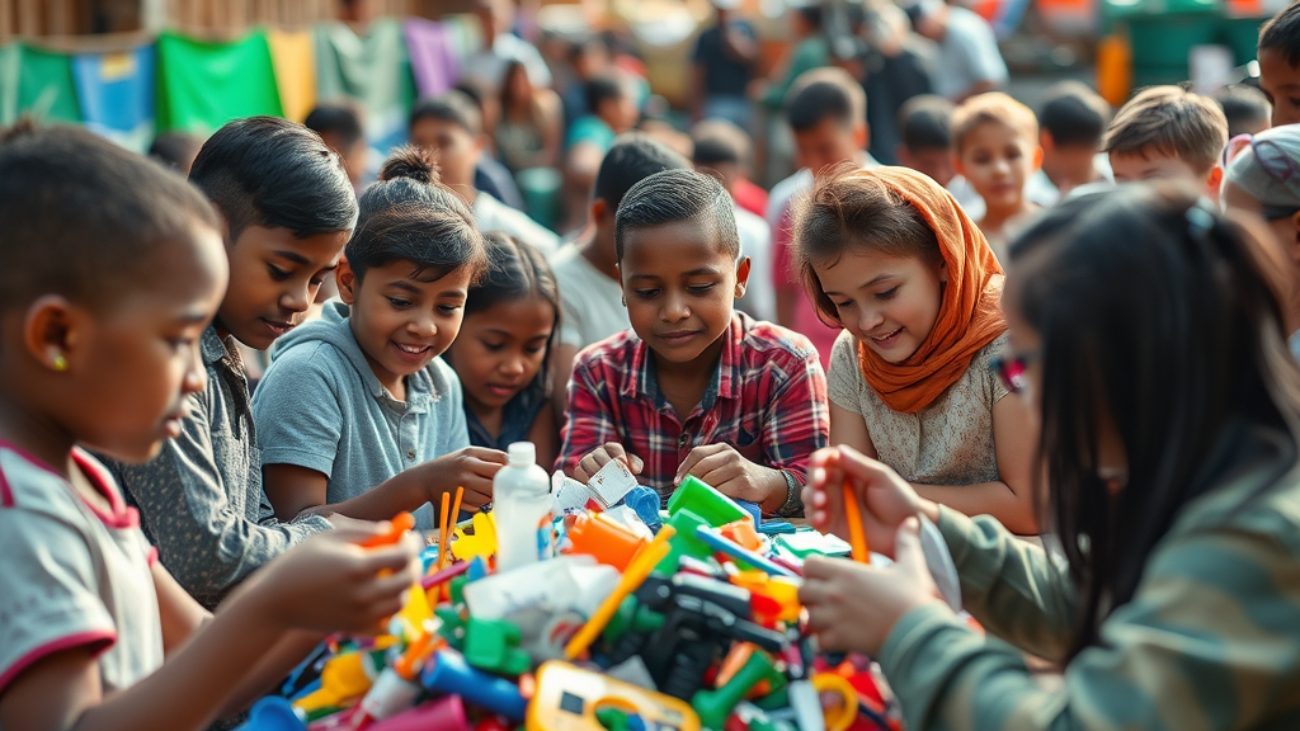We are thrilled to share that Eduplastics, a trailblazing initiative turning plastic waste into a resource for positive change, was recently featured on CGTN Africa. This recognition highlights the transformative work we’re doing to tackle one of Africa’s most pressing environmental challenges: plastic waste pollution.
Eduplastics is more than just a waste management initiative; it’s a movement that empowers communities, educates the public, and fosters sustainable practices. Through our innovative approach, we repurpose discarded plastics into affordable, eco-friendly products like construction materials, contributing to both environmental conservation and sustainable development. The project’s core belief is that “waste is gold,” and we’re proving that every day by transforming what was once seen as trash into valuable commodities.
The Impact of Eduplastics
Africa is currently grappling with a plastic waste crisis, with millions of tons of waste choking urban centers, harming wildlife, and polluting oceans. Eduplastics steps in by not only cleaning up the environment but also creating economic opportunities for local communities. Through partnerships with local waste collectors, artisans, and social enterprises, we empower disadvantaged groups by providing jobs and skills training in plastic upcycling.
Watch Our Interview here https://www.youtube.com/watch?v=YAfZkeMk5aE
Our feature on CGTN Africa provided a platform to showcase these efforts to a broader audience, shining a light on how grassroots initiatives like Eduplastics can contribute to solving global issues. The coverage explored our key initiatives, from waste collection to creating construction materials that address the housing challenges faced by low-income communities in Uganda and beyond. We believe that plastic waste, when managed properly, can be a vital resource in building a more sustainable future.
Key Highlights from the CGTN Africa Feature
During the feature, we shared insights into how Eduplastics is engaging communities in waste collection, recycling, and product creation. One of the standout moments was seeing our team in action—gathering plastics, sorting them, and processing the waste into usable materials for affordable housing and other products. The story also highlighted our educational programs, which teach the next generation about the importance of environmental conservation and sustainable living.
We are excited that CGTN Africa showcased Eduplastics’ holistic approach to tackling plastic waste, which not only mitigates pollution but also builds a circular economy. Our feature included inspiring testimonials from local beneficiaries who have gained new livelihoods thanks to our programs.
A Bright Future for Eduplastics
Being featured on such a reputable platform as CGTN Africa is a tremendous milestone for Eduplastics. It validates our mission and serves as an inspiration to keep pushing forward. As we continue to expand, we are committed to reaching more communities across Africa, offering sustainable solutions to plastic waste and contributing to the global fight against pollution and climate change.
We extend our heartfelt gratitude to CGTN Africa for giving us the opportunity to share our story. Together, we can pave the way for a cleaner, greener, and more equitable world.
If you missed the feature, be sure to check out the video on CGTN Africa’s YouTube channel. Join us in our mission to turn waste into wealth and create a sustainable future for all.





















